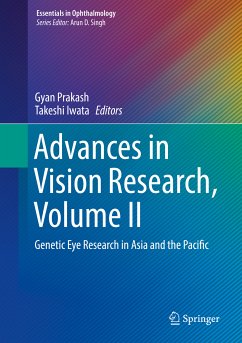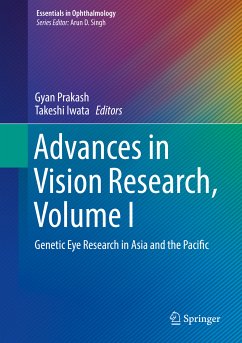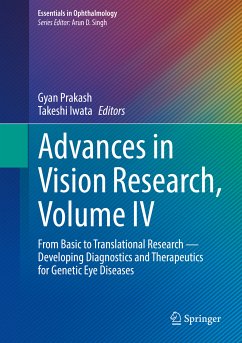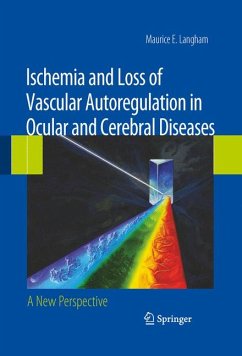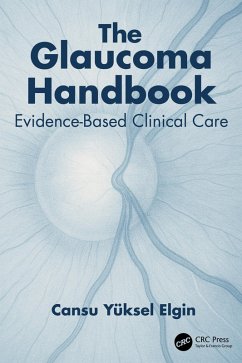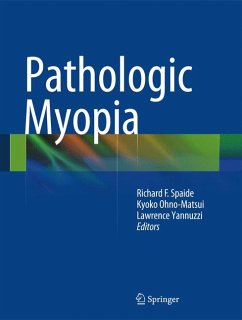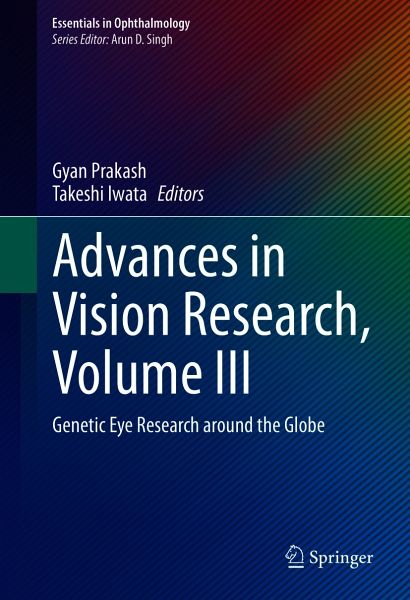
Advances in Vision Research, Volume III (eBook, PDF)
Genetic Eye Research around the Globe
Redaktion: Prakash, Gyan; Iwata, Takeshi
Versandkostenfrei!
Sofort per Download lieferbar
104,95 €
inkl. MwSt.
Weitere Ausgaben:

PAYBACK Punkte
52 °P sammeln!
This third volume, with three supporting editors, broadens its focus on genetic eye research from the Asian to the global scale. New efforts and a new awareness have sparked important discussions on genetic eye research, and new plans are being implemented to identify the genes responsible for numerous eye diseases. The book introduces the latest findings on genetics in eye diseases, gene therapy, and genome-wide association analysis, and the efforts of the Global Eye Genetic Consortium (GEGC). The book's editors have been instrumental in developing strategies for discovering the new genes inv...
This third volume, with three supporting editors, broadens its focus on genetic eye research from the Asian to the global scale. New efforts and a new awareness have sparked important discussions on genetic eye research, and new plans are being implemented to identify the genes responsible for numerous eye diseases. The book introduces the latest findings on genetics in eye diseases, gene therapy, and genome-wide association analysis, and the efforts of the Global Eye Genetic Consortium (GEGC). The book's editors have been instrumental in developing strategies for discovering the new genes involved in many eye diseases. All chapters were written by leading researchers working on eye genetics from the fields of Human Genetics, Ophthalmology, Molecular Biology, Biochemistry, Sensory Sciences, and Clinical Research. Advances in Vision Research, Volume III is a major resource for all researchers, clinicians, clinical researchers, and allied eye health professionals with an interest in eye diseases around the globe.
Dieser Download kann aus rechtlichen Gründen nur mit Rechnungsadresse in A, B, BG, CY, CZ, D, DK, EW, E, FIN, F, GR, HR, H, IRL, I, LT, L, LR, M, NL, PL, P, R, S, SLO, SK ausgeliefert werden.



